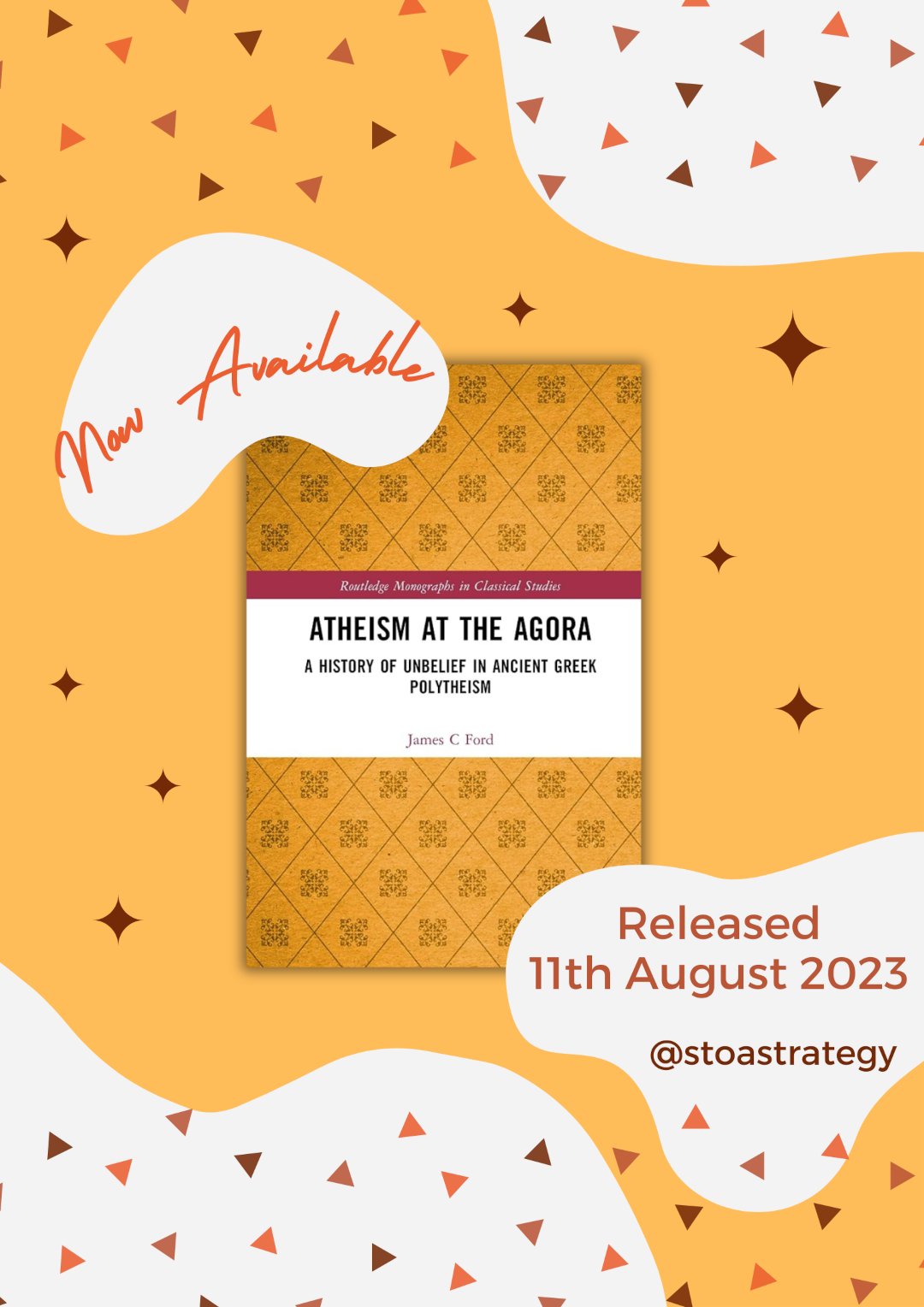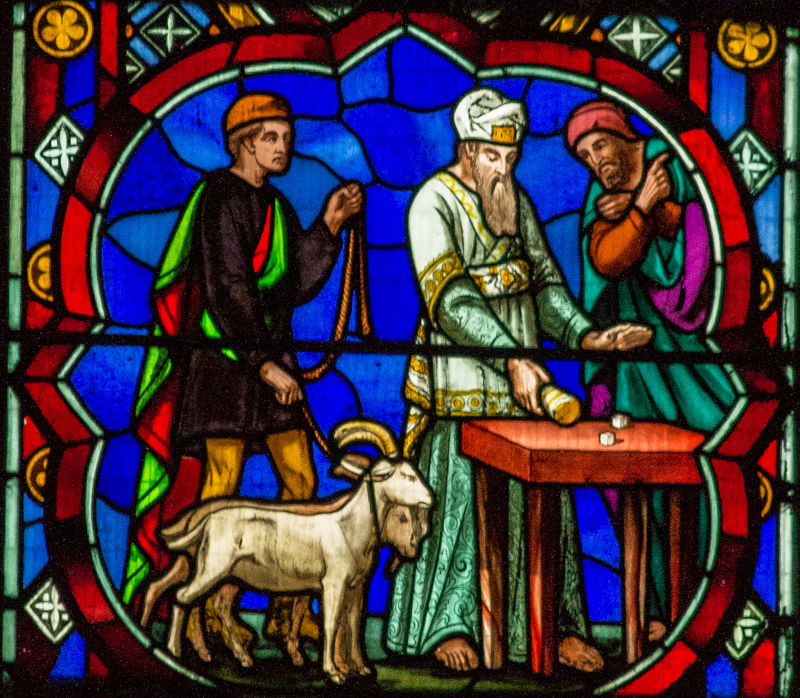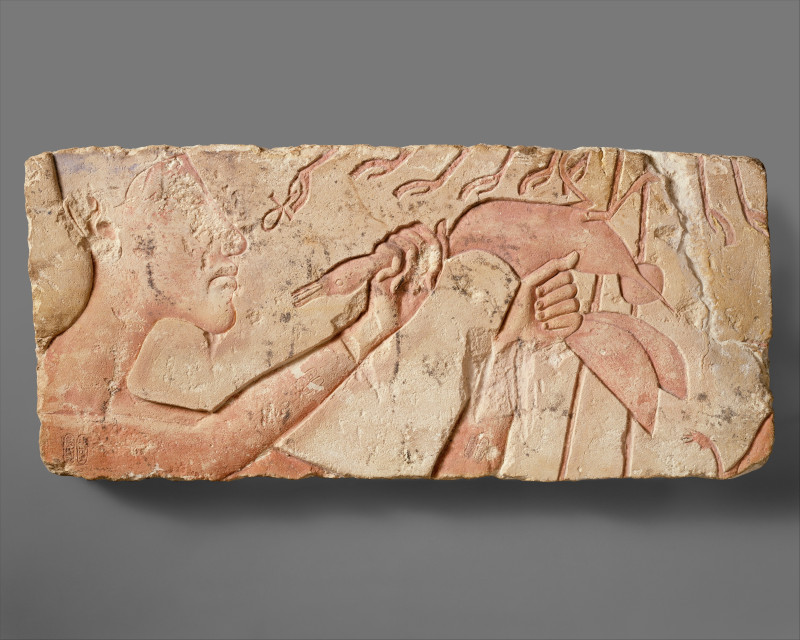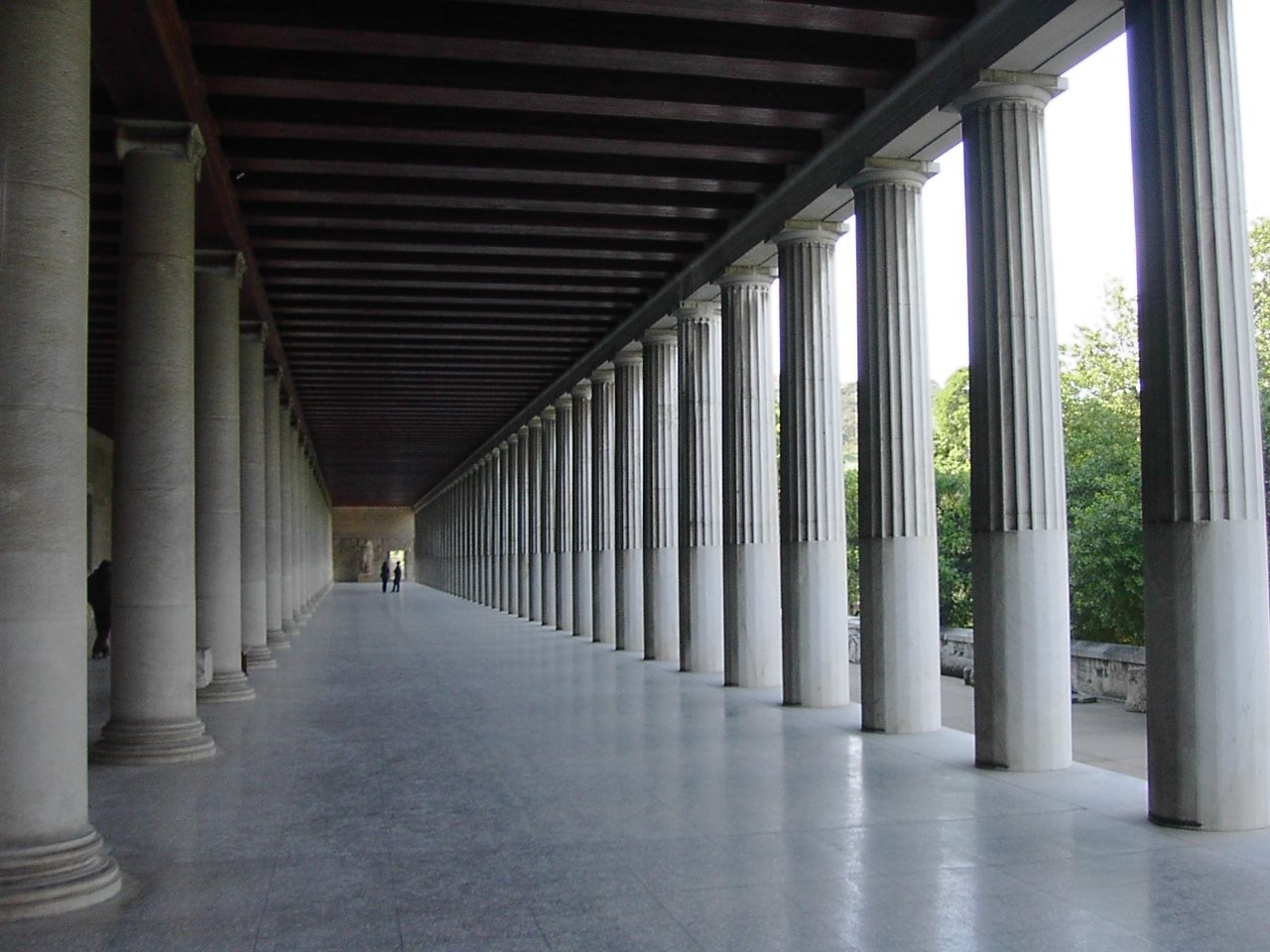Atheism at the Agora: A History of Unbelief in Ancient Greek Polytheism
by Dr James C. Ford

Paperback out now!
Reviews
“A brilliant book. Ford marshalls an immense number of ancient sources – plays, poems, philosophical works, legal texts, and more – to shed remarkable new light on atheism in ancient Greece. And he does so in an engaging and accessible manner. Fascinating!”
Professor Stephen Bullivant, St Mary’s University, UK
“This monograph is, in my view, an indispensable work for all those interested in Greek religion. The way it is written allows it to attract a wide range of potential readers, from specialists who seek new ways of understanding Greek religiosity with a clear emphasis on unbelievers, to less specialised people who want to understand the complexity of Greek religion […] The work is a breath of fresh air in the analysis of atheism in the ancient world: a topic that, as has been shown in recent years, is increasingly relevant in studies on Greek religion. Ford’s work is a grand work of research, involving an excellent use of primary sources and contemporary scholarship on unbelief, where it is demonstrated that an eclectic dialogue between classical studies and other disciplines of the social and human sciences, such as sociology, philosophy, and anthropology, is becoming increasingly necessary in historical analyses. I am convinced that this monograph will contribute to future debates in the field of the history of religions and, especially, in the analysis of unbelief and its history.”
Dr Ramón Soneira-Martínez, Austrian Archaeological Institute (ÖEW) AT, in Arys. Antigüedad: Religiones y Sociedades
“He is right not to emphasize that the Greek theological world was open and improvisatory and not to focus only on the most outrageous statements when studying atheism[…] Ford has rightly drawn attention to questions of doubt and unknowability in Greek religion and its plasticity”
Professor Jan Bremmer, University of Groningen, in Bryn Mawr Classical Review
Events
Scepticism, unbelief, and theological reflection conference
Please join a range of scholars on ancient atheism for a discussion of the methodologies of ancient Greek atheism.
This event has already taken place
Ancient History podcast
Please join the author Dr James Ford and Owain Williams, editor of Ancient History for a discussion of the history of ancient Greek atheism.
This event has already taken place
Celtic Conference in Classics talk
Please join the author Dr James Ford for a talk of theoretical approaches to the history of ancient Greek atheism.
This event has already taken place
AskHistorians Q&A
Please join the author Dr James Ford for an AmA on his new book on the history of ancient Greek atheism.
This event has already taken place
Book launch: reading, highlights, and Q&A
Please join the author Dr James Ford for the launch of Atheism at the Agora, a new book on the history of ancient Greek atheism. This will include author highlights, a reading from the book, a Q&A session, and discussion.
This event has already taken place
Discussions
Posts on the history of atheism
This fresh, comprehensive study of ancient Greek atheism aims to dismantle the current consensus that atheism was ‘unthinkable’ in ancient Greece, demonstrating instead that atheism was not only thinkable but inextricably embedded in the Greek religious environment.
Through careful analysis of a wide range of source material provided in modern English translation, and drawing on philosophy, theology, sociology, and other disciplines, Ford unpicks a two and a half thousand-year history of marginalisation, clearing the way for a new analysis. He lays out in clear terms the nature and form of ancient Greek atheism as the ancient Greeks conceived of it, through a series of themes and lenses. Topics such as religious socialisation, the interaction of atheist philosophy and theology, identity formation through alterity, and the use of atheism in scapegoating are considered not only in broad terms, using a synthesis of modern scholarship to mark out an overview in line with modern consensus, but also by drawing on the unique perspective of ancient atheism Ford is able to provide innovative theories about a range of subjects.
Atheism at the Agora is of interest to students and scholars in Classics, particularly Greek religion and culture, as well as those studying atheism in other historical and contemporary areas, religious studies, philosophy, and theology.
Table of Contents
& chapter abstracts
Chapter 1. Introduction: Clearing the landscape of Greek atheism
22 pages
22 pages
Abstract: This chapter examines the main reasons that scholars of the ancient Greek world have neglected ancient atheism. It breaks down the consensus built on Lucien Febvre’s work: that atheism did not exist in ancient Greece. It argues for the importance of belief as an object of study in Greek religion, explores the errors and insights of the ritual school, and advocates for a move away from approaches that individualise belief and unbelief. Instead, informed by approaches in other fields, the chapter lays out the grounds for a fresh approach, conceiving of atheism in sociological, cultural, terms, and focused on the way that the Greeks themselves understood atheism. This chapter traces the contours and content captured in a new understanding of atheism more appropriate to ancient polytheism.
Chapter 2. Foundations: Learning (un)belief in the Greek religious environment
26 pages
26 pages
Abstract: This chapter argues that Greek education and socialisation taught children about religion as part of the development of a package of civic values. This chapter explores the ways that Greeks learned to believe and the dynamics of socialisation and learning in an environment in which religion was embedded. It considers how these processes might have inculcated atheistic ideas, mainly through the concept of sunousia, or association, and the teaching of new intellectuals; as well as the role of traditional works like Homer and Hesiod that provide a wealth of raw material for doubt. The chapter also shows the importance of accusations of teaching made against accused atheists, who posed a perceived problem in undermining and subverting traditional educational structures and the civic values they trained.
Chapter 3. Morality: Atheist ethics and immorality in the Greek imagination
22 pages
22 pages
Abstract: This chapter examines the complicated and tangential connection between the divine and moral spheres in the Greek world and argues against the notion of a straightforward evolution towards a link between piety and morality. There were multiple consecutive and competing moral theories available in Greece, with fashions for each waxing and waning depending on current events, and the gods were rarely perceived as consistent moral agents until later periods. This chapter explores humanistic moral codes built on harmony in collective living, in which the gods were mechanically disposable, and argues that these lay beneath civic justice, which meant that atheism was not inevitably or inextricably perceived as connected with immorality.
Chapter 4. Theology: Discourses of (a)theology and the evolution of Greek belief
27 pages
27 pages
Abstract: This chapter argues that atheism was crucial to the development and continued relevance of Greek theology. The chapter reconstructs evolving and vibrant theological discourses around the justice of the gods that show an exchange of ideas about the gods throughout the archaic and classical periods. In these agonistic discourses, doubting, critical, atheistic perspectives were not only welcome but crucial to the evolution of the discourse and religious and theological beliefs. They allowed for the development of complex, strong theologies, through continued agonism and criticism, and the fruits of these theological and philosophical labours embedded and informed a range of conceptions of the gods and atheistic philosophies or views.
Chapter 5. Unknowability: The piety of agnosticism in Greek philosophy and practice
23 pages
23 pages
Abstract: This chapter argues that uncertainty of the gods is foundational for Greek religion and theology: a crucial let-out clause that propped up the flexibility of Greek religion. Uncertainty about the gods in the right contexts represented appropriate moderacy in belief and not some kind of third category or a signal of impiety and unbelief for the Greeks. Uncertainty could be developed to doubt the form, nature, or existence of the gods, or even to suggest that they did not exist. This chapter demonstrates that the piety of uncertainty depended on the context and the types of claims made: claiming certainty of knowledge, either in the impossibility of knowledge or too much, was more of a problem.
Chapter 6. Othering: Mediating the legitimacy of (a)theism and the creation of Greek identity
22 pages
22 pages
Abstract: This chapter argues that atheism was seen as an ‘extreme’ in ancient Greece, as part of a category of othering. It sketches the development of a tradition in which atheism was viewed alongside ‘superstition’ or ‘illegitimate’ religion, as largely understandable and normal ideas, positions, or principles taken to the extreme; this tradition informs modern definitions that position atheism as ‘radical’, ‘hard’, disbelief. ‘Illegitimate’ forms of religion in ancient Greece could be seen as atheism, and vice versa, because connections between different forms like magic were used as cues to imply the others. The creation of a category of extreme religious attitudes and behaviours, that contained magicians, frauds, women, foreigners, and atheists allowed for the oppositional generation and reinforcement of religious identity, belief, and practice in Greece without dogma.
Chapter 7. Scapegoats: The threat of atheism to the ancient Greek city
25 pages
25 pages
Abstract: This chapter argues that atheism provided a useful scapegoat for a city under threat. Through dissection of a range of trials in the fifth and fourth centuries, especially that of Socrates, and the backdrop to these trials, it is argued that the core justification for these trials was religious. This chapter argues that while atheism was, in general, accepted and relatively normal, at times of crisis accusations of atheism that led to hostile action could be made against people who had relevant suspect views and were seen as outcasts. This process was of civic purification through the pharmakos. These accusations were a release valve for theological and divine pressure, driven the need to expel pollution, and they created an atmosphere of fear and concern among potential victims.
Chapter 8. Conclusion: Belief in unbelief
7 pages
7 pages
Abstract: This chapter reviews the conclusions and insights made in each of the thematic studies of the book, and the main contributions of the literature to this study. The chapter explores possible future avenues of research, particularly in the potential for a cognitive science of atheism and in studies of the effectiveness in other fields of the definition of atheism applied in this work. The chapter revisits this definition and anchors the study of ancient atheism in polytheism as a study in the history of marginalisation, demonstrating how core attitudes in history and philosophy, through Thucydides, Herodotus, and Plato, helped to marginalise atheism, and argues for the importance of a reclamation project. It argues that the consensus that atheism in ancient Greece was ‘unthinkable’ is now entirely unsustainable, and that instead the study of Greek religion will be incomplete without the study of ancient atheism.







